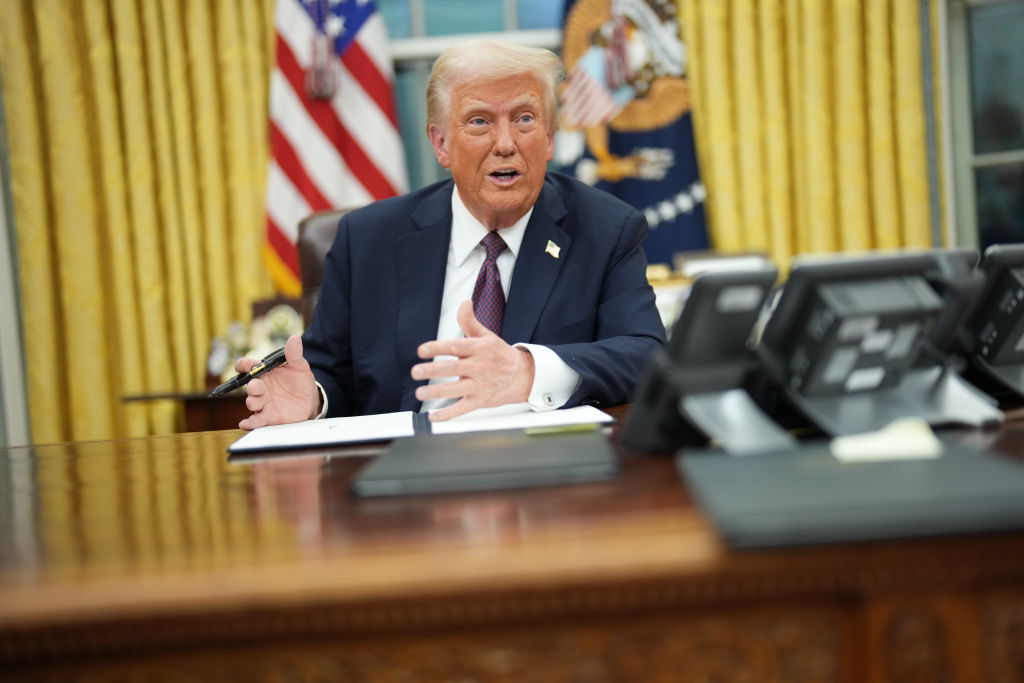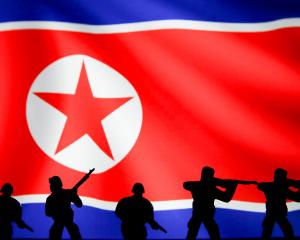
Trump said the global health agency had mishandled the COVID-19 pandemic and other international health crises.
- President Donald Trump signs a series of executive orders at the White House
- Trump begins immigration crackdown
- Trump pardons nearly all charged over Jan. 6 Capitol riot
Trump said the WHO had failed to act independently from the "inappropriate political influence of WHO member states" and required "unfairly onerous payments" from the US that were disproportionate to the sums provided by other, larger countries, such as China.
"World Health ripped us off, everybody rips off the United States. It's not going to happen anymore," Trump said at the signing of an executive order on the withdrawal, shortly after his inauguration to a second term.
The WHO did not immediately respond to a request for comment.
When asked about Trump's decision and remarks, China's foreign ministry told a regular press briefing that the role of the WHO in global health governance should only be strengthened, not weakened.
"China will continue to support the WHO in fulfilling its responsibilities, and deepen international public health cooperation," Guo Jiakun said, a ministry spokesperson.
The move means the US will leave the United Nations health agency in 12 months' time and stop all financial contributions to its work. The United States is by far the WHO's biggest financial backer, contributing around 18% of its overall funding. WHO's most recent two-year budget, for 2024-2025, was $US6.8 billion ($NZ12 billion).
The US departure will likely put at risk programs across the organization, according to several experts both inside and outside the WHO, notably those tackling tuberculosis, the world’s biggest infectious disease killer, as well as HIV/AIDS and other health emergencies.
Trump's order said the administration would cease negotiations on the WHO pandemic treaty while the withdrawal is in progress. US government personnel working with the WHO will be recalled and reassigned, and the government will look for partners to take over necessary WHO activities, according to the order.
The government will review, rescind, and replace the 2024 US Global Health Security Strategy as soon as practicable, the order said.
The next-largest donors to the WHO are the Bill & Melinda Gates Foundation, although most of that funding goes to polio eradication, and the global vaccine group Gavi, followed by the European Commission and the World Bank. The next-largest national donor is Germany, which contributes around 3% of the WHO's funding.
Trump's withdrawal from the WHO is not unexpected. He took steps to quit the body in 2020, during his first term as president, accusing the WHO of aiding China's efforts to "mislead the world" about the origins of COVID.
WHO vigorously denies the allegation and says it continues to press Beijing to share data to determine whether COVID emerged from human contact with infected animals or due to research into similar viruses in a domestic laboratory.
Trump also suspended US contributions to the agency, costing it nearly $US200 million ($NZ354 million) in 2020-2021 versus the previous two-year budgets, as it battled the world's worst health emergency in a century.
Under US law, leaving the WHO requires a one-year notice period, and the payment of any outstanding fees. Before the US withdrawal could be completed last time, Joe Biden won the country’s presidential election and put a stop to it on his first day in office on January 20, 2021.
US to withdraw from Paris climate deal
President Trump once again withdrew the United States from the Paris climate deal, removing the world's biggest historic emitter from global efforts to fight climate change for the second time in a decade.
The move places the United States alongside Iran, Libya and Yemen as the only countries in the world outside the 2015 pact, in which governments agreed to limit global warming to 1.5degC above pre-industrial levels to avoid the worst impacts of climate change.
It reflects Trump's skepticism about global warming, which he has called a hoax, and fits in with his broader agenda to unfetter US oil and gas drillers from regulation so they can maximize output.
Trump signed the executive order withdrawing from the pact in front of supporters gathered at the Capital One Arena in Washington.
"I'm immediately withdrawing from the unfair, one-sided Paris climate accord rip-off," he said before signing the order.
"The United States will not sabotage our own industries while China pollutes with impunity," Trump said.
China said it is concerned about the announcement, citing climate change as a common challenge faced by all humankind.
"No country can stand aloof from it, nor can any country do it alone," Chinese foreign ministry spokesperson Guo Jiakun said at a regular news briefing today.
Guo said China has been consistent in addressing climate change, and will actively respond to the challenges and jointly promote global green and low-carbon transformation.
Despite the withdrawal, United Nations Secretary-General Antonio Guterres is confident that US cities, states and businesses "will continue to demonstrate vision and leadership by working for the low-carbon, resilient economic growth that will create quality jobs," said associate UN spokesperson Florencia Soto Nino, in a written statement.
"It is crucial that the United States remains a leader on environmental issues," she said. "The collective efforts under the Paris Agreement have made a difference but we need to go much further and faster together."
The United States has to formally notify UN Secretary General Antonio Guterres of its withdrawal, which - under the terms of the deal - will take effect one year later.
The United States is already the world’s top producer of oil and natural gas thanks to a years-long drilling boom in Texas, New Mexico and elsewhere, fueled by fracking technology and strong global prices since Russia’s invasion of Ukraine.












